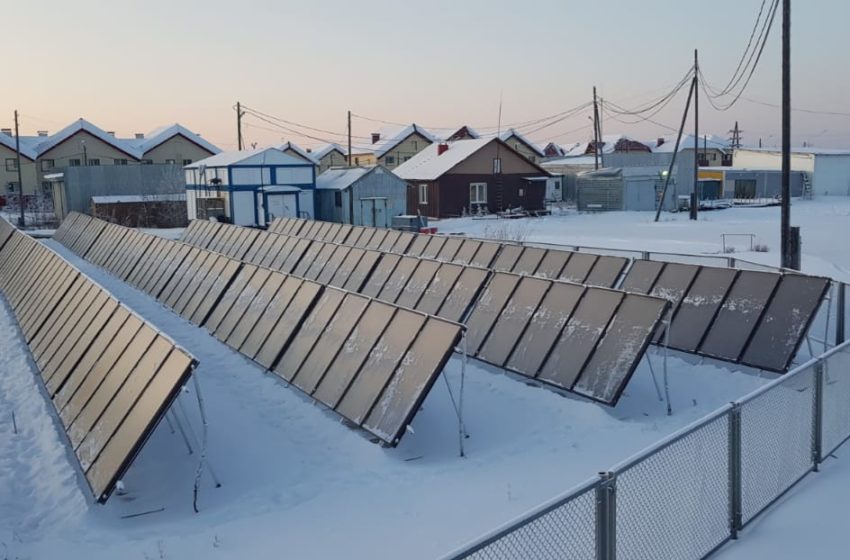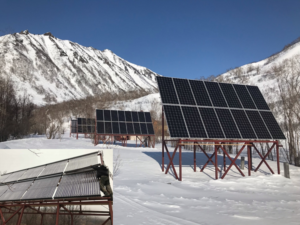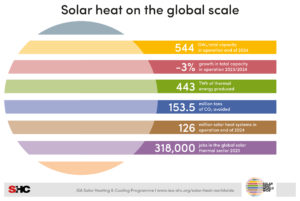Russian solar thermal industry in deep crisis
September 18, 2022
The Russian solar thermal industry is currently experiencing a severe crisis. International solar thermal suppliers have suspended business activities in Russia due to the ongoing military conflict in Ukraine. The sanctions implemented have reduced the purchasing power of local customers. Solarthermalworld.org contacted representatives of two solar thermal technology suppliers to discuss the current market situation.
Photo: Alrosa
One of these companies is the German collector and boiler manufacturer Viessmann, which prior to 24 February 2022 had strong positions on the Russian market. Sergej Solovjev, Viessmann´s senior product line manager in Russia confirms: “Since the supply of Viessmann equipment to Russia was stopped due to the situation relating to Ukraine, no major projects have been implemented this year. This includes the solar heat segment.”
In a press release on 4 March 2022 Viessmann headquarters announced “we have stopped all deliveries to and from Russia, including spare parts.” At the same time the company continued to pay salaries to Russian employees to “take care of our employees and people in need in the crisis region”.
Withdrawing business activities in Russia
Solovjev expects that due to the decrease in purchasing power of the local population and the withdrawal of German and Austrian solar collector manufacturers from Russia, the solar thermal market will face a sharp drop this year. According to him, the market decline will also be caused by the high cost of logistics, which will make supply to Russia very expensive for both producers and dealers.
The second interview partner was Alexander Maksimenko, Senior Research Fellow Voronezh State University and Director of the small enterprise Plasma Innovative Technologies, which works in the area of solar thermal installations. He has observed significantly declining interest in solar collectors in recent years. There are two reasons for this. Firstly, the low energy prices in Russia and secondly the massive devaluation of the Russian ruble since 2014, which has increased prices of imported products.
Payback periods between 5 and 49 years
Maksimenko calculates that a solar hot water system only pays for itself very slowly.
Currently in Russia the cost of electricity is 3 to 4 RUB/kWh and that of natural gas is 5.6 RUB/m3. Heating 200 litres of water to 40 °C requires around 10 kWh of electricity per day (35 RUB ≈ EUR 0.5) or 1 m3 of gas (RUB 5.6 ≈ EUR 0.1). With an average of around 200 sunny days per year, a solar water heater saves EUR 20 annually when replacing gas or EUR 100 when replacing electricity according to Maksimenko.
He considers the cost of a 2 m2 flat-plate collector of RUB 30,000 (EUR 495) or RUB 60,000 (EUR 990) for a vacuum tube collector, the payback period will be between 5 years (flat plate collectors replacing electricity) and 49 years (vacuum tube collectors replacing gas).
Fewer spots with no gas or electricity grid in Russia
According to Maksimenko, the most relevant solar thermal customer group has been owners of housing units in the countryside away from gas and electricity grids. However, the energy grid has been developed further in Russia and there are fewer such remote spots. At the same time, summer houses are not being equipped with solar collectors due to their relatively high cost and the risk of them being broken or stolen.
Organisations mentioned in this article:
Viessmann: https://www.viessmann.family/en
Voronezh State University: http://www.vsu.ru/


